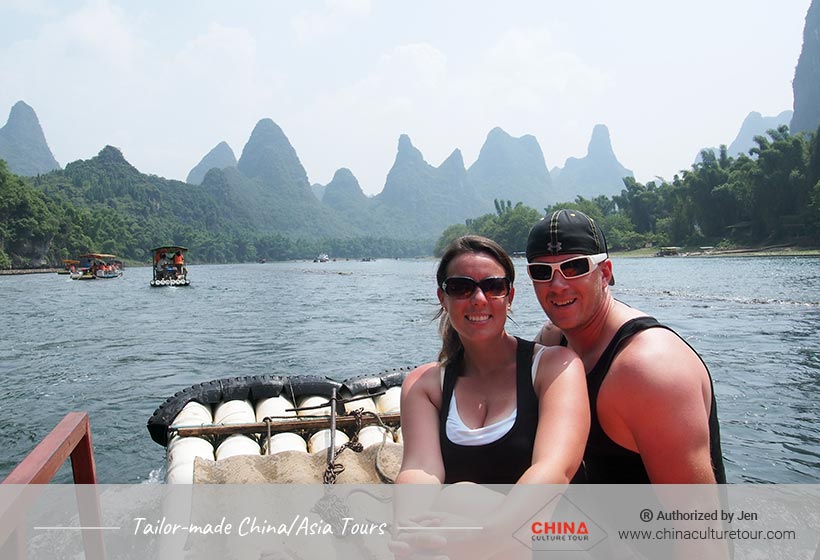20 Good Suggestions To Savor China Regional Food Specialties
20 Good Suggestions To Savor China Regional Food Specialties
Blog Article
Top 10 Tips To Deal With copyright Products When Shopping In China
1. Know the most risky items to avoid Watches, bags, watches electronics, electronic gadgets, and designer clothing are most commonly counterfeited. They must be considered with caution.
Pro: You can focus on items that are most likely to be copyright.
Con: Uncertainty over the authenticity of products may cause suspicion.
2. Find authentic product details from reputable sources
Choose a retailer that you are familiar with. Know the details of their branding, materials, and stitching.
Pro: Improves your ability to spot subtle differences between fake and real products.
Con: Time-consuming, especially for products you're less acquainted with.
3. Trusted Stores
If you're looking to purchase high-end products at malls or brands that are official like Beijing's China World Mall and Shanghai's Plaza 66, then stick to them.
Pro It comes with receipts and warranties and assures the authenticity of the product.
The con is that items can be more expensive than at street markets or small stores.
4. Labels and Check Labels
Look for typos, inconsistent fonts or poor-quality materials in tags and packaging.
Pro: An easy and simple method to spot poorly made counterfeits.
Contra: Counterfeits of high-quality could appear to be authentic which makes it harder to identify.
5. Beware of "Too Good to be True" Prices
The cost of luxury items is usually very affordable. This should raise the alarm. True luxury items rarely sell much less than the retail price.
Pro: Avoids obvious frauds.
Con Some sellers moderately price counterfeits to give them a more convincing appearance.
6. Request Certificates of Validity
Tip - For items like jade (or antiques) brand-name merchandise or brand new goods, ask for authentic proof.
Pro: Provides an additional level of assurance in your purchase.
Con: This method cannot be trusted because certificates can be faked too.
7. Test Before Making Purchase
Request to test expensive electronic devices before making your final decision.
Pro: Confirms its quality and function.
Con: Sellers may not necessarily allow testing. Testing may also be restricted or superficial.
8. Avoid buying antiques if you are not an expert.
Tip: A true antique requires extensive knowledge and a professional verification. Beware of them until you can confirm their authenticity.
Advantage: You are less likely to be scammed using a replica or copyright.
Con: If you don't look around, you might not find something appealing or even authentic ornamental pieces.
9. Use an Local Guide That You Trust
A local guide or a friend who is familiar with the market will be in a position to assist you in identifying authentic vendors and identify counterfeits.
Pro: Lowers the risk of buying in market that is not well-known.
Cons: Guides may have a fee or a commission that will add to your costs.
10. Take advantage of your intuition
Walk away if you feel there's something wrong regardless of whether it's the attitude of the vendor, the product's quality or the price.
Pro: It protects you against regrettable purchases.
Be cautious: Being too cautious could cause you to miss out legitimate deals.
Cons of Avoiding copyright Products
Durability: Genuine goods are stronger and provide better value.
Peace of mind: There's no reason to be worried about being cheated or deceived.
Legal Safety: Certain nations penalize travelers who bring back copyright products.
It is essential to support authentic products to maintaining ethical business procedures.
The Benefits of avoiding bogus goods
Authentic goods are typically more expensive.
Limited Availability: Some genuine products may not be readily available in small shops.
There are fakes that provide a huge quantity of value.
These suggestions can help you navigate your shopping trip in China confidently and to make an educated choice about whether or not you want to buy authentic items. Read the top rated discover the charm of this site for site recommendations including top three buddhist temples in chengdu, zechawa valley tour route, chinaexpeditiontours.comattractions, zhangjiajie tour maps, eating in taiyuan, luoyang peony and wangcheng park, four great classical novels.html, xi an travel tips, shopping in shangri la, litchi park and more.
Top 10 Tips On Seasonal Visits When Visiting Famous Temples In China
1. Visit the temples during Off-Season(Autumn/Winter).Tip. Take a look at visiting famous Chinese temples when the weather is cool (usually from November through February). The temperature will be cooler, and there will be fewer visitors.
Pro: It's quieter and provides a more tranquil experience.
Con: The weather may be colder than usual, making outdoor temple tours less fun.
2. Be prepared for extreme weather conditions
Tip: Temperatures in different seasons may be drastically different. The summer can be humid and hot, whereas winters can often be freezing. Check the forecast and pack appropriately.
Pro: If you're prepared for any weather condition so you'll feel at ease on your visit.
Cons: It is difficult to prepare to deal with extreme weather, especially when you're traveling in a small amount.
3. Visits to Vibrant Flora in the spring and Summer.
A tip: Visiting temples in spring and summer allows you to witness gorgeous gardens, flowers in bloom, and lush landscapes around the temples.
Pro: Beautiful landscapes enhance the visual experience of touring the grounds of the temple.
Con: Summer can be very hot and crowded, especially during national holidays.
4. Take into consideration festivals, special events and Other Events
Make sure to visit during traditional celebrations like Chinese New Year or Mid-Autumn Festival. These festivals offer a variety of rituals and celebrations and also a chance to immerse yourself in the temple's vibrant culture.
Pro: There are a lot of temples that offer traditional and exciting events. This is an excellent way to experience a new tradition.
Con: During the festival season temples may become very crowded and prices for accommodation may increase.
5. Beware of Peak Holiday Seasons
TIP: Avoid visiting temples during tourist peak season, such as Chinese New Year and Golden Week (October), which are often crowded by foreign and local visitors.
Pros: Relaxed visits without crowds. It is an uplifting experience.
Pros: Some important events can be missed during busy times.
6. Check for Winter Closures of Temples
A tip: Some temples could have limited hours or closed during winter's colder months, in particular in remote areas or northern regions. Always verify the time ahead.
Avoid unnecessary trips by planning ahead.
Con: Some temples might have reduced hours or be entirely closed during repairs, which can lead to disappointment.
7. Early Morning Visits in the Summer
Be sure to arrive early in the day to avoid the scorching heat of midday. A lot of temples are begin opening at dawn. This is a peaceful moment with less people.
The cooler temperatures as well as the absence of crowds makes for more relaxing vacation.
Con: It requires an early rise-up time, which might not be suitable for all.
8. Get ready for the season of rain
In the southern part of China, heavy rains can occur during the summer. If you are visiting during this time, bring an umbrella or rain gear.
You can still appreciate the beauty of the temple even in the event of rain.
Con: Rain may interfere with outdoor activities, and can make temples slippery.
9. The best time of the year is in autumn to visit mountain temples
Tip: Autumn is an perfect time to visit temples in mountainous regions (e.g., Mount Wutai or Mount Emei) as the temperature is mild, and the fall foliage creates breathtaking landscapes.
Pro A cool climate allows to enjoy more comfort while walking or hiking and also allow for stunning views.
Con: Popular temples in the mountains may attract crowds on weekends and holidays.
10. Take a look at the Lunar Calendar for Specific Events
Tip: Many temples follow the lunar calendar of China Certain rituals or events are tied to certain dates. It is crucial to verify the calendar to be able to participate in major events, such as the Lantern Festival, Buddha’s Birthday or other temple ceremonies.
Pro: Unique cultural experiences and deeper insights into the spiritual practices of local communities.
Con: It can take extra time to research and plan around the lunar calendar, and some events might not be aligned with your travel dates.
Benefits of a Seasonal Trip to Chinese Temples
Fewer Crowds - Off-season trips are quieter and more reflective.
Festivals: Cultural events offer the chance to know more about local customs as well as cultural.
Scenic Beauty - Spring and fall are the ideal times to visit. You can enjoy beautiful landscapes, as well as lively gardens at temples.
Exploring the Tempel is more enjoyable in the autumn and winter months.
Pros and Cons of Seasonal Chinese Temples Visits
Unpredictable Weather - Winter may be chilly, and summer can be too hot. Both weather conditions could affect your ease of living.
Some temples are closed during extreme weather or during off-season.
When it is a festival, the temple can be crowded. This makes it hard to enjoy the peaceful atmosphere of a temple.
Limited Events: If you're traveling outside of the season, some seasonal events may not be happening.
You can make your visit to China's temples more memorable and enjoyable by picking the most appropriate time and planning ahead. Understanding the dynamics of the seasons is crucial to making the most of any trip. Check out the top get details on this famous place for more examples including blue dragon temple, great tang all day mall xian.html, shopping in kashgar, naked marriage in china the most fashionable wedding style for the 1980s, shaoxing wine the best yellow wine in china, eating in taiyuan, shopping in shangri la, basha miao village, taishan, a wonderful landscape painting lijiang river and more.